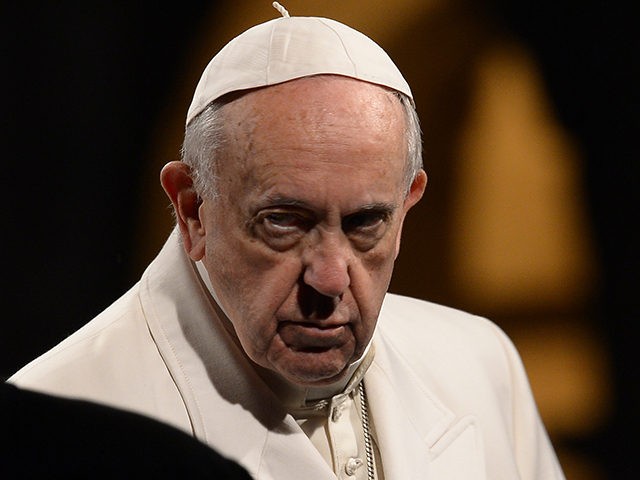ROME — Pope Francis has proven to be a deeply authoritarian leader of the Catholic Church despite his rhetoric on “decentralization,” veteran Vatican journalist John L. Allen asserted Sunday.
While Francis has said he wants “consultation and shared decision-making to become a core characteristic of ecclesiastical life,” Allen notes, the facts on the ground tell “a somewhat different tale.”
In point of fact, Allen argues, Francis has progressively reappropriated authority previously delegated to the world’s bishops, concentrating all important Church decision-making in Rome.
As an example, Allen cites the pontiff’s crackdown on the Traditional Latin Mass, culminating this week in a declaration that bishops no longer have the power to permit priests to celebrate Mass according to the old rite. All such permissions are now the exclusive domain of the Vatican.
Francis has also centralized financial control, Allen adds, directing that “all assets of institutions created by departments of the Roman Curia, or by other entities linked to the Holy See, belong to the Vatican and are subject to the pope’s control.”
Similarly, last June, Francis ruled that diocesan bishops may no longer declare a new ecclesial group as a “public association of the faithful” within the diocese with a view toward becoming a religious order but must first obtain Vatican permission to do so, Allen observes.
Allen proposes that these and other similar centralizing measures represent the “imperial phase” of the Francis papacy, perhaps in reference to Rome’s historic passage from republic to empire when Julius Caesar declared himself “dictator perpetuo” and shortly afterward with the reign of his adopted son, Octavian “Augustus” Caesar, as first emperor.
What Allen fails to do, however, is demonstrate that Francis’s authoritarian micromanagement is just a “phase” in his papacy, rather than a defining hallmark of his entire ten years as pope.
In 2018, historian Henry Sire (under the pseudonym Marcantonio Colonna) released a bestselling book, provocatively titled The Dictator Pope: The Inside Story of the Francis Papacy.
In it, Sire depicted Francis as “authoritarian, manipulative, and politically partisan,” insisting that these characteristics shine forth in every move the pope has made, from his vindictive clampdown on the Knights of Malta to his blackballing of conservative prelates as rigid “doctors of the law” to his gutting of the John Paul II Institute for Marriage and Family to his creation of a climate of fear in and around the Vatican.
In a similar vein, First Things editor R.R. Reno has recently compared Pope Francis to his two immediate predecessors, Popes John Paul II and Benedict XVI, asserting that while the latter two were innovative and forward-looking, Francis is a “throwback,” who has effectively brought back the “imperial papacy,” flouting the episcopal collegiality proclaimed by the Second Vatican Council.
Vatican II overturned the “centralizing and authoritarian style” of papal governance, Reno wrote, putting renewed emphasis on episcopal collegiality.
And yet, “ultramontanism and papal autocracy returned with the election of Jorge Mario Bergoglio, S.J.,” he continued. “Today’s Vatican has more in common with the era of Pius XII than with that of John Paul II.”
Under John Paul II, Reno stated, “men with a variety of theological views rose to positions of power and prominence,” something that is completely unheard of in the Francis era.
John Paul II “rarely intervened in routine matters of governance, because he trusted the spiritual achievement of the Second Vatican Council,” Reno said, because he believed that “the council provided a theologically sound and capacious foundation for the modern Catholic Church, one that did not require him to micromanage appointments or compel cardinals and bishops to agree with him.”
Francis, on the contrary, “operates differently,” Reno wrote, appointing “men clearly allied with his program” to positions of prominence.
Francis, he said, “seems determined to exercise maximal control.”
In the end, whether Francis’s imperialist tendencies are a constant of his papacy or a more recent “phase” in his evolving governance is not the most important question at hand. One way or another, that is where he is now, and it stands as an indelible mark on his legacy.

COMMENTS
Please let us know if you're having issues with commenting.